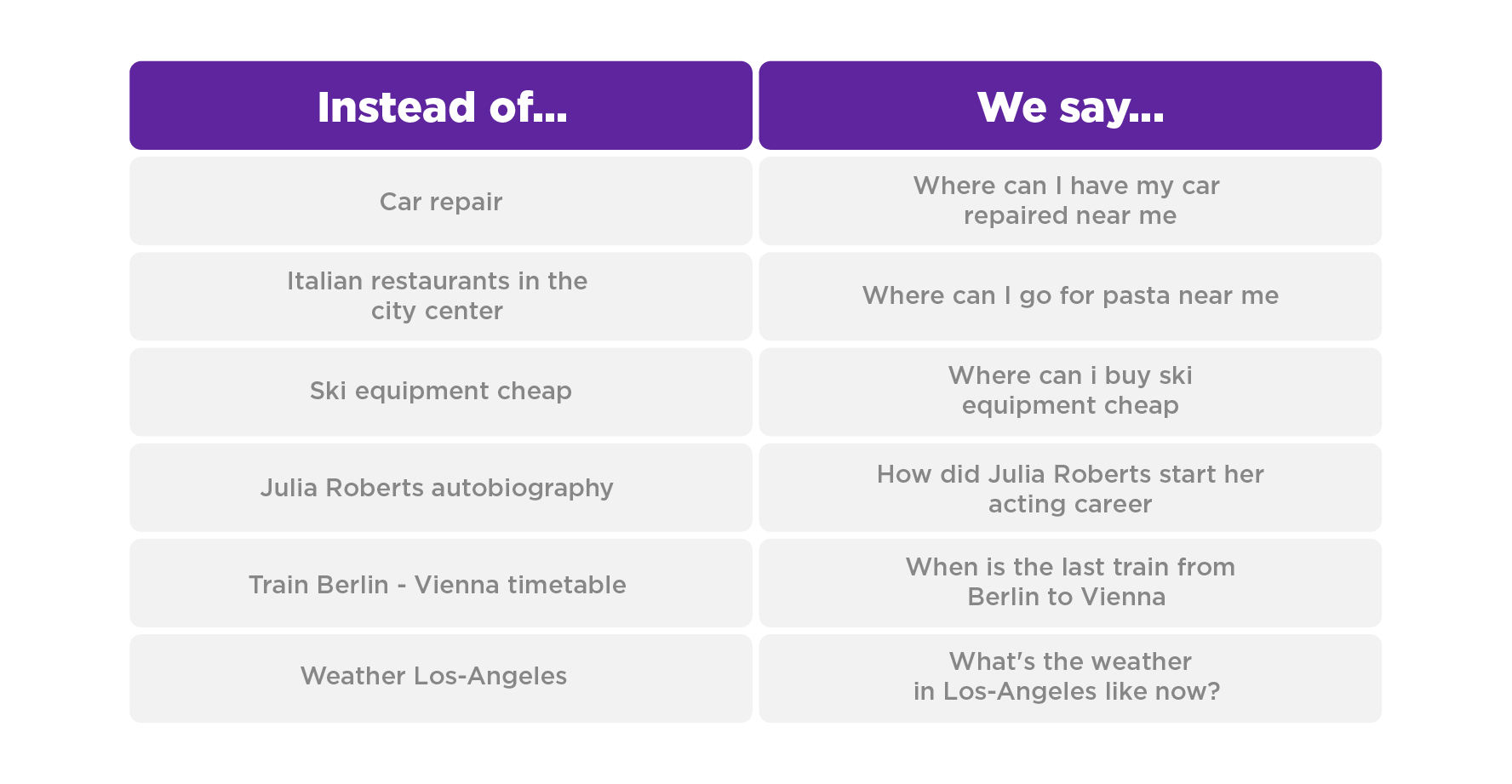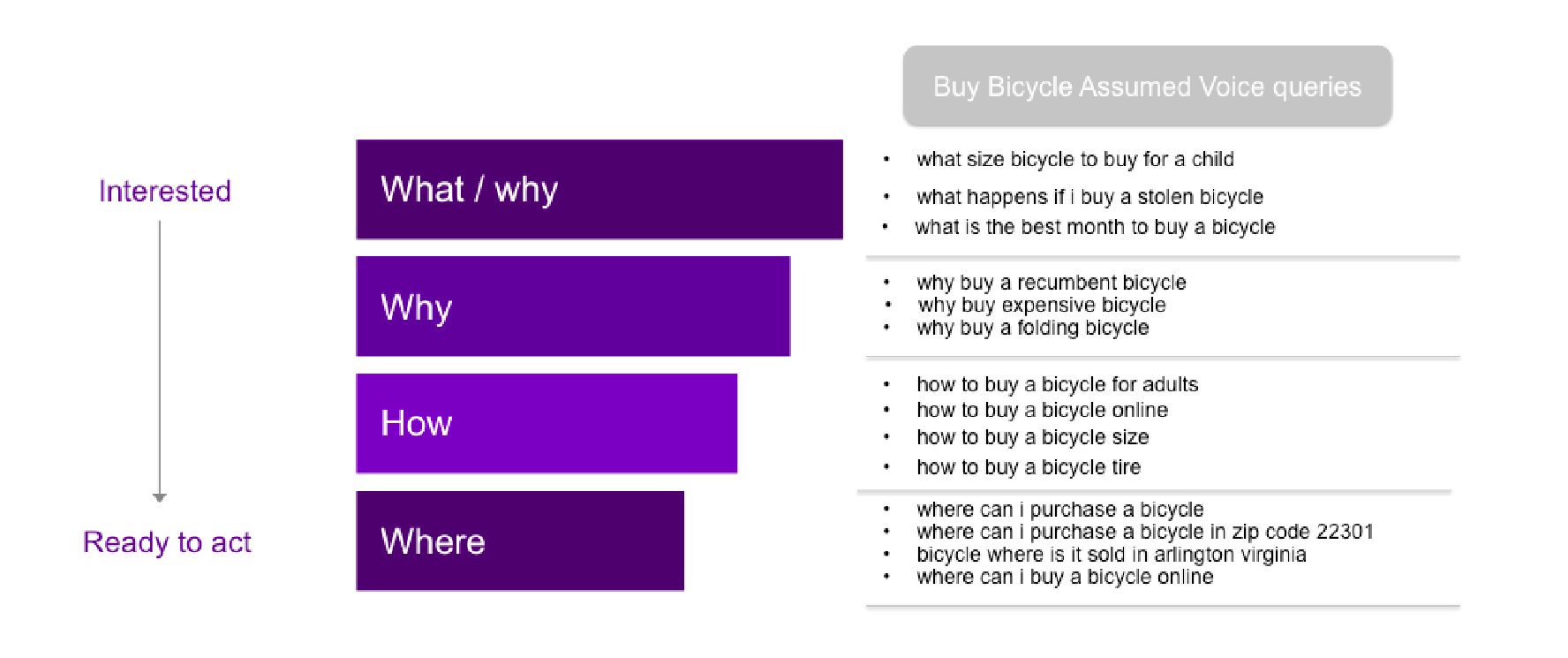- Blog
- Tips & Guides
- Digital Marketing in the Voice Search Era: What Marketers Should Know
Digital Marketing in the Voice Search Era: What Marketers Should Know
With numbers of voice-search queries increasing, we cannot but draw our attention to this trend and the possible impact it might have on affiliate and other online business. The search analysis by ComScore foresights that half of all web queries will be voice-activated by 2020 in comparison to 20% of voice-search that we have now.
Given that more and more people rely on multitasking in their daily life, this prediction is quite anticipated. Voice search is one of the tools that allow users to master doing several things at the same time. Further development of voice search can be more clearly prototyped on the mobile sphere, due to the fact that the majority of voice search calls are done when people are somewhere, moving or spending time with their friends or colleagues. Additionally, voice search tends to be more mobile and locally focused because it’s embedded into many mobile apps and devices, what is available to a wide audience.
Reasons Why Users Prefer Voice Search Over Text Search
Voice search is indisputably convenient. We can experience that from voice-powered devices being constantly enhanced for better user experience. And speaking about voice-search we mean not only web-search, like online queries or communication with digital assistants like Siri and Cortana, but also voice-control over smart devices, like Amazon Echo and Google Home, the popularity of which is on the rise.
Among the most popular reasons for voice-search popularity are:
- Searching with voice is faster than typing. The average amount of words people can type in a minute is 38 – 40, while with the voice people can produce 110 – 150 words. People simply speak more quickly than they type.
- Voice search is hands-free, which is convenient in situations when people are busy with something else and cannot type.
- Drawbacks of small screens. Even though modern mobile devices are developed with usability in mind, sometimes to ask a question out loud is more convenient rather than to type on a small screen. Missprinting or wrong autocorrect are still relevant irritants.
- More and more smartphones with advanced built-in voice-search features. Having this feature people simply cannot help but try it out. And as it is really easy and convenient, they are naturally getting used to it.
- Kind of fun to use to explore its possibilities.

Voice-search changes the way users search online
Before predicting how the search algorithm will change and which measures we should undertake in this regard, first, we need to answer the question whether the way we search will change. And the response is undoubtedly that it will.
With the voice-search we almost change the communication pattern, we actually start to communicate with devices. The language becomes more natural. Even though people refer to a machine, now they send queries in a more human way, using phrases, questions; in other words full sentences, not only keywords.
In this way, we are moving toward actually starting to talk with our devices. Search queries will be longer and often phrased as questions. They will be maximum natural, thus if only listen to the voice you may even not distinguish a person talking to a device from a person talking to another person.
With queries becoming more natural, they also become longer. That’s what we mean

Also, get ready for a lot of “Near Me” keywords. Following the natural language algorithm, people will use a lot of “Near Me” phrases. The phrase that doesn’t mean anything for traditional SEO, for Voice Search SEO will mean working on the accuracy of identifying and matching geolocation and a business location. As people will be looking for something close and, unless it is an online store, they need to be able to reach this place.
As the prediction is that half of all online searches will be made through voice search by the year 2020, search engines understand an approaching difference in search queries and aim at voice search optimization.
The fact that requests will be formulated in a different way doesn’t mean that it will get harder to find a product. It just means that online businesses need to optimize their online presence for voice search users. In the same manner, that doesn’t mean that traditional SEO is in the past. We see a certain environment and products where people tend to rely on voice search more, but the amount of traditional search will still remain. Thus owners of websites or any online business, especially B2C, now should think twice and have their sites adjusted for both search listings and voice search.
Advantage for business
Even though voice-search is bringing changes towards the searching process and pushes online business to change their content respectively, it also brings a positive aspect. Namely, natural language reveals intent more clearly. We get requests, that have more conversational character and specify more of what users are looking for. In this way questions can reveal whether a search is for some basic knowledge, exploration of the variety of goods and their main qualities, comparison of products from competitors, or looking for offers to buy it. With natural language getting entrenched into voice-search you can segregate buyers accordingly to the funnel stage where they are.
By being able to understand these requests we can create specific content and optimize it for the search, and subsequently, with feeding potential customers walk them through all customer journey to the final converting stage.

Source: https://moz.com/blog/the-step-by-step-guide-to-testing-voice-search
Take advantage of this question words segmentation and deliver relevant content to the targeted audience. What is left to do is to optimize your website respectively, what means taking steps towards:
-ensuring quick load of your website
-responsive content on mobile devices
-providing answers to the most common question
-taking care of geo IP accuracy
-including featured blocks of content

Written by
Affise Academy
Affise is a partner marketing platform for brands, advertisers and agencies to scale via all possible performance marketing channels. Synergy of technology and our long standing experience lets you expand your partnerships, automate every step of the campaign lifecycle and make data-driven decisions.
See all articles →



















